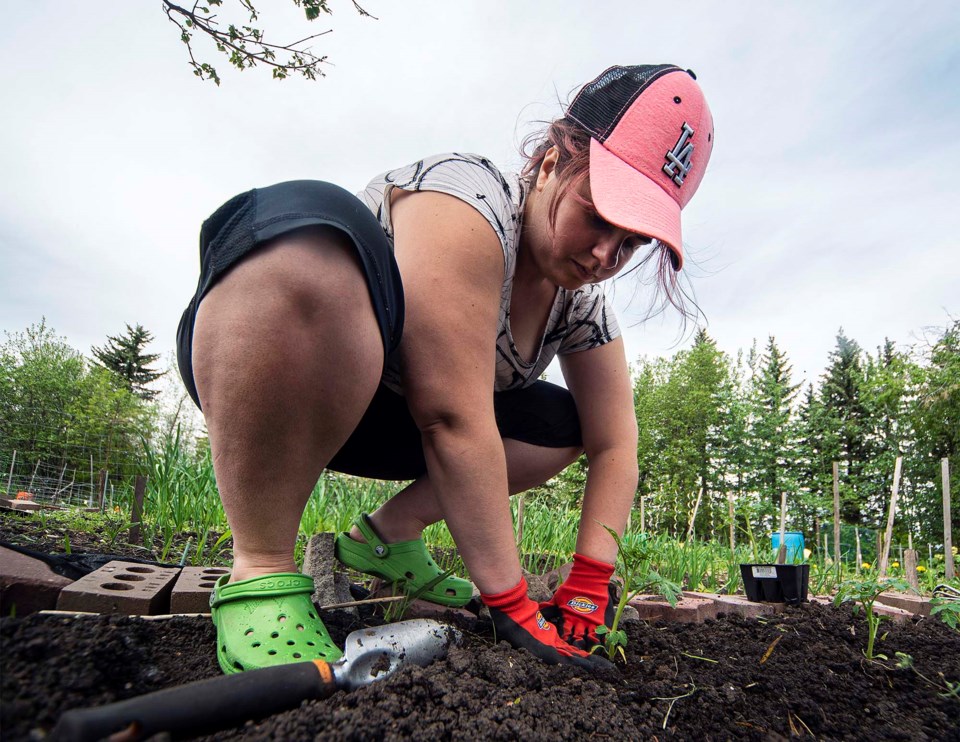Beans and beets could one day burst from a boulevard near you under an urban agriculture plan now being developed in St. Albert.
The City of St. Albert’s Urban Agriculture Plan survey closes Nov. 14. Launched Oct. 23, the survey asks respondents what they would and would not like to see in the city’s upcoming urban agriculture plan.
While it has many examples of urban agriculture, including community gardens and backyard hens and bees, St. Albert does not yet have a formal urban agriculture plan, said city planner Suzanne Ruegg. The city is now creating such a plan as per its obligations under the Edmonton Metropolitan Region Board’s Regional Agricultural Master Plan. Ruegg emphasized this plan applies exclusively to the urbanized part of the city and would not affect existing farms.
As part of the plan, Ruegg said the city has launched a survey to identify the types of urban agriculture residents want and the barriers preventing people from practising urban agriculture.
“Urban agriculture itself can have a very wide range,” Ruegg said, and can include community gardens, value-added food production, even breweries.
Jill Cunningham, who helped organize the food forest at Grain Elevator Park in 2016, said she is happy the city is talking about urban agriculture.
“There’s such a high interest in growing food locally right now,” she said, and urban agriculture could help address issues such as climate change and affordability.
Planting ideas
The survey lists many forms of urban agriculture, including market gardens, rooftop gardens, and agri-tourism. It also asks if the city should make parks, medians, and boulevards available for urban agriculture.
Ruegg said some cities let residents use public lands (such as the boulevard in front of their homes) as gardens. Edmonton’s Residential Boulevard Gardening Program lets residents with a permit turn boulevards that are not mowed by city crews into gardens, for example.
St. Albert Catholic High teacher Neil Korotash (who for many years taught an urban agriculture class in Morinville) said he supports the idea of boulevard gardens, and noted one of his neighbours already planted marigolds around boulevard trees.
“If lots of people want to grow vegetables on the boulevard in front of their house, hey, that’s better than mowing the lawn in my opinion.”
The survey also raises the idea of edible public landscaping.
Korotash approved of this idea, and said the city should consider putting edible herbs in planters for people to harvest as Morinville once did through its Incredible Edibles program. City crews should keep using edible plants such as raspberries and saskatoons in their naturalization programs and carefully consider planting more fruit trees.
“Being able to walk down to the end of the street to a park and pick some apples is cool,” he said, and can help build community.
Cunningham said the city’s urban agriculture plan should emphasize public education and the importance of local food production for climate resilience. It could also support demonstration sites such as the food forest next to Grace Family Church.
Korotash suggested setting aside land in new area structure plans for community gardens, as denser developments could mean less backyard space for gardeners.
Ruegg said the city would compile a report based on the survey (which had about 50 respondents as of Nov. 8) and hold an urban agriculture workshop in the coming months. She hopes to have a draft plan before council by early 2025.
The urban agriculture plan survey can be found at conversation.stalbert.ca/urban-agriculture-plan. Anyone interested in the workshop should contact Ruegg at [email protected].




